Chennai Super Kings, one of the most charismatic teams in the Indian Premier League, is also its most controversial. N Sundaresha Subramanian & Urvi Malvania examine how it is reinventing itself to get rid of the controversies and improve brand value
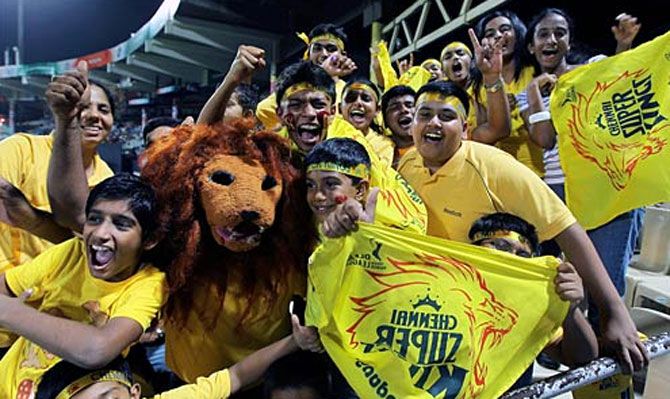
Through the past few months, Chennai Super Kings Cricket Ltd (CSK), new owner of the eponymous team in the Indian Premier League (IPL), has taken several steps to become an independent corporate entity. Triggered by a legal tussle over former Board of Control for Cricket in India (BCCI) chief N Srinivasan wearing the twin hats of administrator and team owner, following a betting scandal, the ownership restructuring at of one of the more popular IPL teams has generated a lot of controversy.
Business Standard takes a close look at this exercise, tracking the company’s filings with the corporate affairs ministry and annual reports of the company’s erstwhile parent, India Cements. According to the publicly announced plans, India Cements was to transfer ownership of the team to its shareholders.
Recent filings with the ministry show CSK has secured shareholder approval for increasing its authorised capital to Rs 3.13 crore (Rs 31.3 million) from the current Rs 500,000 by issuing 30.8 million shares. These new shares are likely to be crucial in streamlining India Cements’ plan to hand over ownership of the new entity to shareholders.
According to filings as late as last week, CSK said its shareholders had cleared the plan in an extraordinary general meeting on March 30. The filings also showed the existing 50,000 shares of Rs 10 each, initially held by India Cements and its six nominees, were transferred to a trust called India Cements Shareholders Trust. N R Krishnan, India Cements independent director and former Indian Administrative Service officer, has been named the trustee.
The filings showed on January 23, CSK and India Cements had signed a framework agreement to govern their ties. The terms of this agreement are not public. An India Cements spokesperson did not respond to an email seeking comment, sent on April 24.
The developments are significant, as the IPL franchisee, controlled by the N Srinivasan-promoted India Cements, has taken flak over the valuation of the new company at Rs 500,000 and paying Rs 25,000 to BCCI as the mandatory five per cent cut on such deals.
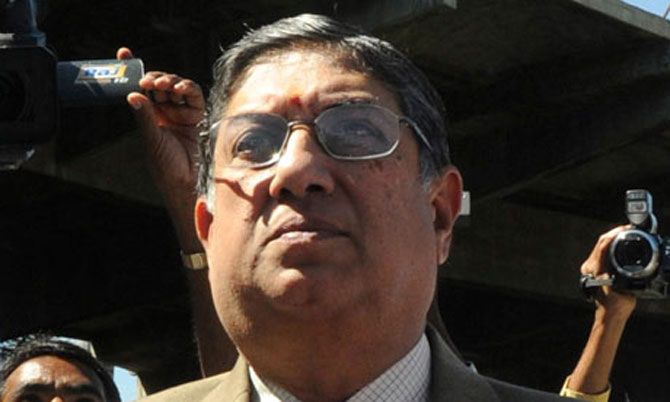
India Cements financials
Till last year, all income and expenditure of CSK, only a business division, was part of India Cements’ balance sheet. An analysis of the annual reports for the past six years showed the $91-million franchisee fee payable to BCCI through a year was capitalised as an intangible asset in the first year at Rs 364 crore (Rs 40/dollar). India Cements has been amortising Rs 36.4 crore (Rs 364 million) on this account every year. As of March last year, the written-down value of these rights stood at Rs 142.5 crore (Rs 1.42 billlion).
Revenue from IPL was recorded separately by India Cements. However, expenditure was clubbed with natural heads of accounts such as salaries, administrative costs and travel expenditure. Only one expenditure head - salaries paid to foreign players in foreign currency - was recorded separately.
Revenue from IPL more than doubled from Rs 70.6 crore (Rs 706 million) in FY09 to Rs 166.16 crore (Rs 1.66 billion) in FY14, while forex expenditure rose fourfold - from Rs 10.11 crore (Rs 101 million) to Rs 37.32 crore (Rs 373 million). Overall earnings in these six years works out to Rs 680 crore (Rs 6.8 billion); of this, amortisation of rights cost Rs 221.5 crore (Rs 2.21 billion) and expenses on foreign players stand at Rs 160.13 crore (Rs 1.6 billion).
Figures available in the market indicate in recent years, CSK spent about Rs 60 crore (Rs 600 million) on players annually, including expenditure on foreign ones. According to post-auction announcements, this year, the team spent Rs 62.3 crore (Rs 623 million) on player acquisition and retention. On the day of the auction, it spent Rs 4.1 crore (Rs 41 million) in acquiring eight new players this season, and the rest on retaining 16. Last year, it spent Rs 59.8 crore (Rs 598 million) on player acquisition and retention. Players’ salary cap was Rs 60 crore last year and was increased to Rs 63 crore (Rs 630 million) this year.
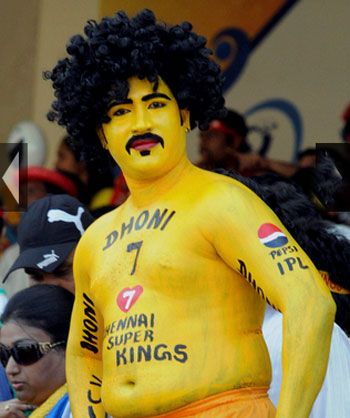
Valuation estimates
While these figures are inadequate to arrive at the exact profitability of the franchise, it appears to have more than recovered its investments. Even if one assumes CSK spent at the higher end of Rs 60 crore during each of these six years, India Cements would have about Rs 100 crore (Rs 1 billion) left in its IPL pocket after paying the franchisee fee instalments.
At a time when cash-burning e-commerce businesses are being valued at billions of dollars, CSK wouldn’t break sweat to find a private equity major that would value it at a few million dollars.
After all, going by India Cements’ earnings, it is already throwing up cash from operations and is set to complete the franchisee rights fee instalments in a couple of years.
While there are no official valuation reports of the business, a few brand consultants Business Standard spoke to referred to reports by Brand Finance and American Appraisal.
The American Appraisal report, which has estimated the brand value of CSK at $67 million (Rs 427.32 crore), is based on a survey of 300 key participants of the IPL system - team managements, sponsors, advertisers, advertising agencies and broadcasters.
The report incorporates an analysis of the entire stream of cash flows available to franchises and breaks it down into two parts - cash flows attributable to brand strength (team sponsorship, merchandising, etc) and those that aren’t related to the brand (share of central pool sponsorship, broadcasting, etc).
Brand value has been estimated only on the basis of cash flows attributable to brand strength. As such, $67 million is only half the story. But this is a decline from last year’s brand value, which the same report estimated at $72 million. Consultants attribute the fall to controversy surrounding the court case and uncertainty over ownership of the team.
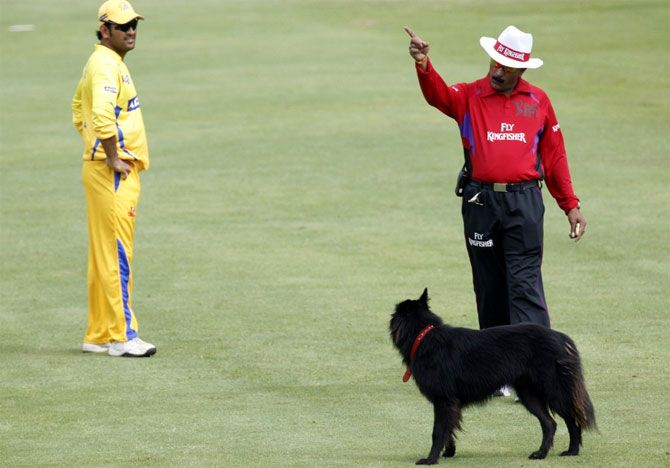
Rejig to address conflict
According to incorporation documents, 49,994 of the 50,000 CSK shares were allotted to India Cements in December, while six were allotted to India Cements employees T S Raghupathy, K S Viswanathan, N Venkateswaran, R Srinivasan, V M Mohan and Rakesh Singh.
In a filing dated January 9, these nominees declared, “India Cements Ltd holds equitable interest in the above shares. These shares are held in my name on behalf of the India Cements Ltd. Since the number of members in a public limited company cannot be less than seven, the subject shares are held in my name as nominee of India Cements.”
K S Viswanathan, known as ‘Kasi sir’ in cricket circles, is an office-bearer in the Tamil Nadu Cricket Association, headed by Srinivasan. He is also a director of CSK Cricket Ltd. L Sabarneetam, chief executive of Coromandel Sugars (an India Cements associate), is also on board. The directors have been empowered with financial powers of up to Rs 50 crore (Rs 500 million).
On January 22, the Supreme Court struck down a BCCI clause that allowed Srinivasan to play the twin roles. On February 6, India Cements told exchanges its board was meeting to approve a proposal to clear the demerger of CSK. On February 11, the board cleared these proposals.
On February 28, CSK said the beneficial interest of these six shares had been transferred to the India Cements Shareholders Trust. “India Cements Ltd, the original beneficial interest holder, vide its letter dated February 28, transferred the beneficial interest in the shares to India Cements Shareholders Trust,” the filing said.
A filing in April named N R Krishnan as the trust’s trustee, with March 26 as the date of declaration.
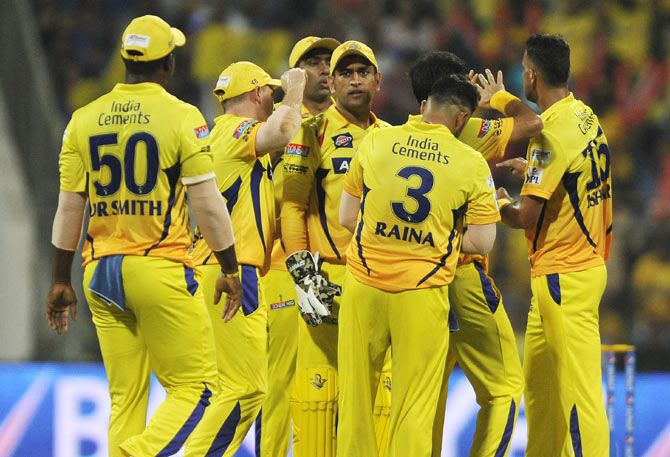
Significance of fresh issue
On March 30, the extraordinary general meeting cleared the following restructuring proposal: “The company proposes to offer, issue and allot equity shares (and/or other securities) for an aggregate amount not exceeding Rs 308.16 lakh on a rights basis to existing shareholders. The company’s current authorised share capital is Rs 500,000 - divided into 50,000 equity shares of Rs 10 each. To have better liquidity for the equity shares, it is proposed to sub-divide the equity shares of Rs 10 each into equity shares of Rs 1 each.”
What is the significance of Rs 3.08 crore or 30.816 million shares?
“The effective date of transfer will be January 1, 2015,” said the India Cements annual report. A day before the effective date of transfer, on December 31, 2014, India Cements had 307.17 million shares outstanding.
As such, this rights issue is likely to bring in a 1:10 correlation between the number of shares outstanding in CSK Cricket and India Cements.
It appears BCCI got a fee of Rs 25,000 on the February transfer from India Cements to India Cements Shareholders Trust, carried out at a face value of Rs 500,000. The argument of Srinivasan’s detractors in BCCI, it seems, is this transfer should be at the market price or an arm’s length price.
But India Cements shareholders have approved a proposal to sell it at the ‘cost’. The process of spinning off CSK into a separate corporate entity was put in motion in September last year, at an India Cements board meeting. The board approved a proposal to “demerge Chennai Super Kings… into a wholly-owned subsidiary of the company, by transferring its net assets at cost”, according to the FY14 annual report.
Can BCCI override this decision? By reducing the payout to BCCI, India Cements has protected valuable cash of its shareholders, who will now own CSK through the trust. However, whether the trust-owned company with handpicked directors, one of whom has interests in both India Cements and cricket administration, addresses the conflict of interest is a different question.
Contours of a new entity
Key dates:
September 2014
India Cements board clears demerger and spin-off on cost basis
December 2014
Chennai Super Kings Cricket Ltd incorporated; India Cements and nominees are shareholders
January 22, 2015
SC strikes down BCCI constitutional clause that allows team ownership by administrators
February 6
India Cements calls board meeting to clear terms of demerger
February 11
New plans for CSK approved
February 28
Transfer of shares owned by India Cements to trust
March 26
N R Krishnan declared trustee
March 30
CSK EGM approves restructure plan involving rights issue of 30.8 million shares




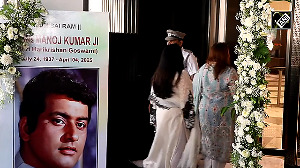

 © 2025
© 2025